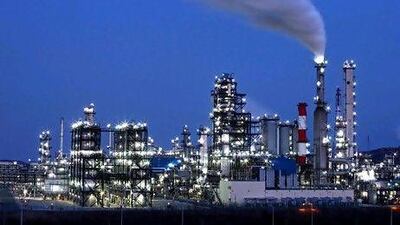The recent shocks to global financial markets have sparked a debate among economists as to the correct response to what is widely assumed to be a looming recession.
On the one hand, there are those, mainly in the US, who argue that governments must engage in another round of fiscal stimulus to head off the recessionary threat; on the other, there is a school of thought, led by Germany and some Asian countries, that says the only response is further fiscal tightening.
Abu Dhabi, the main motor of the UAE economy, has not been left out of that debate. "We are not in a bubble, and we must take into account global conditions. The correct response is a pragmatic and disciplined reaction," says a senior Abu Dhabi official, who asked not to be identified.
In the context of energy-rich Abu Dhabi, in a period of high global energy prices but economic uncertainty, there is a potential conflict between pragmatism and discipline.
There has been evidence, some of it anecdotal, of budget tightening and cost saving by Abu Dhabi's big government agencies and government-related enterprises; but at the same time, largely thanks to the bank of capital built up over the years in sovereign wealth funds such as the Abu Dhabi Investment Authority (Adia), the emirate is not facing the same pressures as many other governments, both in the Middle East and the rest of the world.
Funds from Adia and another state-owned investment group, Abu Dhabi Investment Company, have been used to make up deficits in the public accounts, according to documents filed with the IMF by the Department of Finance.
The dilemma - fiscal prudence or financial intervention - has been evident ever since before the first financial crisis. A working paper prepared for the IMF by the economist Serhan Cevik stated: "The fiscal policy stance of Abu Dhabi turned forcefully pro-cyclical after 2006, and then counter-cyclical in 2009 … In 2010, on the other hand, fiscal policy turned contractionary."
The current stance is undoubtedly for a "balanced" approach to fiscal policy, according to public statements by Abu Dhabi financial officials. The reasons for it are obvious, as shown by documents released by the emirate and public pronouncements by the IMF in consultation with the Government.
In a bond prospectus issued by Abu Dhabi investment group Waha Capital last year, total expenditure by the Government was shown to increase from Dh187bn (US$50.9bn) in 2008 to Dh251bn in 2009, while the accounts moved from a surplus of Dh89bn to a deficit of Dh126bn.
For last year, the estimate was a reduced deficit of Dh84bn on significantly lower government expenditure of Dh207bn.
That trend is largely confirmed in a statistical review prepared for the IMF last May, although the figures differed. Based on a review of Abu Dhabi fiscal operations on data supplied by the Department of Finance, the Abu Dhabi account went from a surplus of Dh113bn in 2008 to a deficit of Dh117bn in 2009. That was reduced to Dh57bn last year, according to the IMF document.
The great variable in all these calculations is the world market price for oil. Energy-related revenue accounts for the biggest portion by far of all government revenues, and the analysis of energy market assumptions as revealed to the IMF shows a conservative and cautious approach to the public exchequer.
The assumed price of oil in 2009 was $40 per barrel, when in fact the actual average in that year was $67. Last year, the assumed level was $60, but in fact crude traded substantially higher for most of the year. This year, it has been consistently above $100 for long periods, greatly increasing the flexibility of the Government towards expenditure and deficit.
The other variable is the overall rate of economic growth for Abu Dhabi this year. Even before the latest global financial crisis and threat of recession, particularly in the US and parts of Europe, this was a matter of difference between different authorities, ranging from 3.5 per cent from the IMF to nearly 8 per cent by the emirate's Chamber of Commerce and Industry.
In the current uncertain financial climate, however, few economists are forecasting higher growth rates for the rest of this year.
One London-based economist, who did not wish to be quoted on grounds that official figures were not yet available, said: "Unlike some other Gulf states, the Government has not promised any massive fiscal stimulus programme, so it has room to manoeuvre."
The government official said: "The multiple parts of the Abu Dhabi ecosystem will react differently to the global situation. For some, proper fiscal prudence reflective of the wider economic pressures will lead to reductions in spending and the testing and proving of the public budget."

